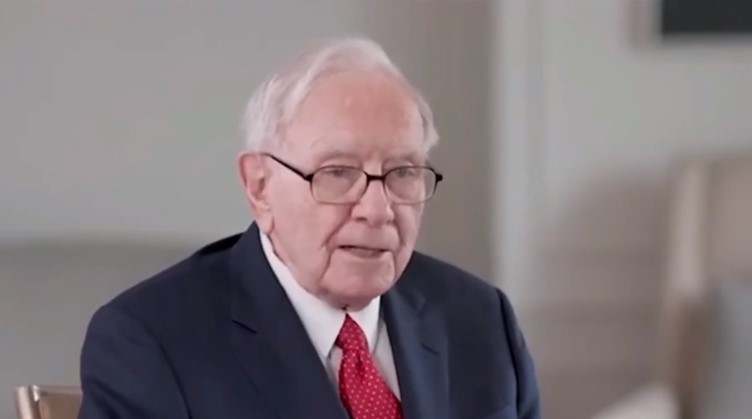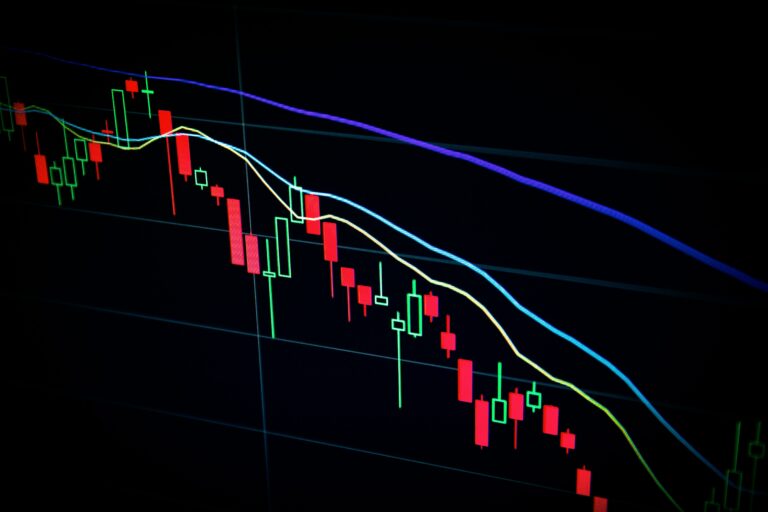
How Warren Buffet Invest in a Recession
Dive into one of the world’s greatest minds in investing.

These past few weeks, the market has been hit with news of one recession after another. With Germany and Eurozone being the latest. It’s not rocket science to associate recession with a bad market. However, a bad market doesn’t always mean that it’s a bad time to buy. On the contrary, good investors like Warren Buffet consider it a good time to buy!
Is the US entering a recession anytime soon?
With the US, it’s hard to tell if a recession is coming or not, not because the data isn’t there, but because the only one who can decide if a recession has taken place in the US is the National Bureau of Economic Research (NBER). Hyperbolically, you can say that even if everyone in the US is only left with a dollar to survive, if the NBER decides that it is not yet within its definition of a recession, then it’s not.
Accept that your existing portfolio may take the hit

One thing that took many investors out is that they got disheartened when they saw their current portfolio is full of reds, so they called quits on investing during the recession. There’s only so much you can do about it — but it’s the recession — what can you expect? Everyone’s portfolio is looking at reds.
One good trait that Warren Buffet has is, he knows that it’s part of the game. If you can rejoice when the market is bullish, you can cry when it’s bearish — but don’t stop. Take the punch and just keep on moving.
During the 2008 recession, Berkshire Hathaway (Warren Buffet’s investment firm) saw their construction portfolio taking some massive beatings, apart from many others, but he told his investors that they are going to report it as straight-faced as possible, just like how they reported the gains in the years before.
Keep assets that are strong

Strong here doesn’t refer to an asset that performs well during a recession. The price can fall, it’s a crazy time — a single piece of not-so-good news, which on a normal day may not amount to much can wipe out huge sums in share prices. A strong stock is one in which the company can maintain its competitive advantage even when the weather is bad.
When recessions ravage the market landscape, revealing hidden gems amidst the rubble becomes Buffett’s mission. With laser-like precision, he identifies undervalued stocks, shunned by the masses due to short-term market conditions.
These diamonds in the rough possess sturdy fundamentals, unshakable competitive advantages, and untapped growth potential. Guided by sagacious research and analysis, Buffett uncovers these hidden treasures, knowing that patience and foresight will ultimately reveal their full brilliance.
Put it like this, the recession is quite like when it floods. No house would be spared, but the strong ones are going to still stand (despite being engulfed in mud) while the weaker ones get washed away. What Warren Buffet does is that he looks for these strong stocks. How? We’ll get to it below!
Look at the company's intrinsic value

In the depths of a recession, Buffett displays an unyielding focus on battle-hardened businesses built to withstand economic turmoil. He seeks out companies with enduring value, fortified by robust competitive advantages, and steered by exceptional management teams.
These traits act as impenetrable armor, shielding businesses from the relentless onslaught of recessionary pressures. By investing in resilience, Buffett emerges triumphant from the storm of the economic downturn. In his letter published in 2008, Buffet explained that he couldn’t care less about the short-term volatility of his assets, as long as the long-term prospect of profit is reasonable.
“BHRG does not cede these risks to mitigate volatility as management accepts such potential volatility provided that the long-term prospect of achieving underwriting profits is reasonable.” — Warren Buffet
BUT, here’s the catch. Finding the companies that are truly valuable isn’t easy. As for Buffet, his firm is equipped with wondrous brains that can look for these, apart from the man himself who is a maverick in the financial sphere.
For us normal human beings, we can still make money, but you can’t expect to be amassing growth such as that of Buffet, but make do with what you can, buying 1 stock with 50% growth is much better than buying 10 with a total of 10%, right?
All in all, don’t overreact to annual performance, but look into a wider perspective like the 5-years performance, or more.
Recession is a discount season in the market

Buffett’s genius lies in his ability to perceive opportunity amidst the fearful clamor of recessionary markets. He sees recessions as precious chances to acquire high-quality stocks at prices deflated by market hysteria. As panic takes hold, valuations plummet, offering extraordinary potential for tremendous gains in the future.
Here are the three things Buffet highlighted in his 2008 letter:
“a depressed stock market is likely to present us with significant advantages. For one thing, it tends to reduce the prices at which entire companies become available for purchase.
Second, a depressed market makes it easier for our insurance companies to buy small pieces of wonderful businesses — including additional pieces of businesses we already own — at attractive prices.
And third, some of those same wonderful businesses, such as Coca-Cola, are consistent buyers of their own shares, which means that they, and we, gain from the cheaper prices at which they can buy.”
And he then puts it in a way that is understandable even for those who aren’t in finance:
“Overall, Berkshire and its long-term shareholders benefit from a sinking stock market much as a regular purchaser of food benefits from declining food prices. So when the market plummets — as it will from time to time — neither panic nor mourn. It’s good news for Berkshire.”
Simply, they use market panics to their own advantage. The recession won’t last forever, and these companies will begin to grow again once that’s over.
Diversify!

One thing that Buffet made sure to keep on doing, regardless of the market weather is to diversify. In his letter, he mentioned:
In good years and bad, Charlie and I simply focus on four goals:
(1) maintaining Berkshire’s Gibraltar-like financial position, which features huge amounts of excess liquidity, near-term obligations that are modest, and dozens of sources of earnings and cash;
…
(3) acquiring and developing new and varied streams of earnings;”
In the face of uncertainty, Buffett’s strategic weapon of choice is always diversification. By dispersing investments across a wide array of asset classes, industries, and geographical locations, he constructs an impenetrable fortress against the ravages of recession.
You can bet on a sector but always entertain the chance that it might not work, look at other companies or sectors as well.
This deliberate act of spreading risk shields his portfolio from the full force of any single investment’s misfortune. Just as a masterful conductor harmonizes a symphony, Buffett orchestrates a symphony of diversification, skillfully weaving together different melodies of financial opportunity.
Don't wait for the market to fully crash

Buying when the market crashes is definitely a dream thing for many investors — first, it’s due to the fact that you get to buy stocks at the cheapest possible price, which also means that you’ll be making one of the highest possible gains; and second, many of the weaker companies are weeded out, so you have less work of vetting them out.
The thing is, you can’t really tell when the market is going to tank if it is ever going to. Here’s the situation, you want to buy a pair of shoes, and it costs you $100 on a normal day, but then there’s a discount of 30%. Would you buy or would you wait to see if they’re slicing it further? They might slice it, but if they don’t, you’ll miss out on the 30% discount. A discount is a discount, right?
In October 2008, Buffet wrote that he was on the move to buy stocks, but the market then fell by another 30%. By normal logic, one would say that Buffet missed out on the 30% extra discount — but to someone like Buffet, a discount is a discount!
Bottom line
Investing in a recession is not as easy as it sounds. It’s hard to stay sane when everyone around you is screaming and wailing. However, if you manage to drown out the noise and make the best of it, you’ll emerge battle-hardened, and investing when the market is good wouldn’t be much of a task anymore. We’ll end this with one of his quotes:
“If you aren’t willing to own a stock for 10 years, don’t even think about owning it for 10 minutes.”
Do keep an eye out for our posts by subscribing to our channel and social media.
None of the material above or on our website is to be construed as a solicitation, recommendation or offer to buy or sell any security, financial product or instrument. Investors should carefully consider if the security and/or product is suitable for them in view of their entire investment portfolio. All investing involves risks, including the possible loss of money invested, and past performance does not guarantee future performance.






